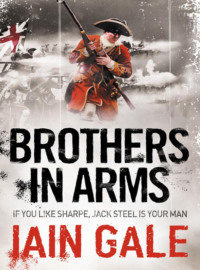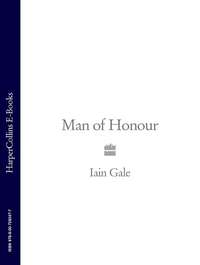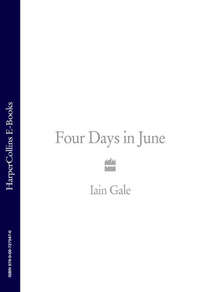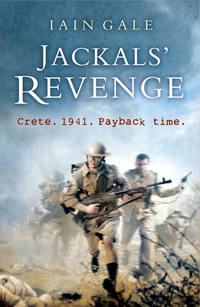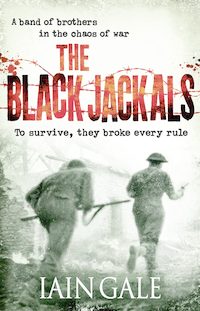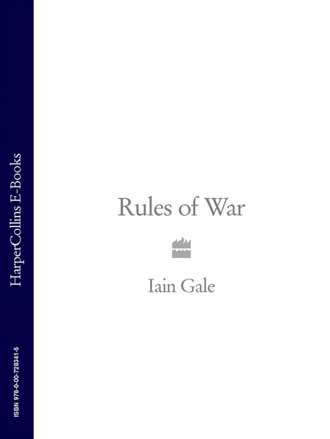
Полная версия
Rules of War
Without a further word, van Cutzem reined his horse around and galloped back to his regiment.
As Sergeant Slaughter goaded the redcoats into action, Hansam looked at Steel and shook his head. ‘Really Jack. You go too far. He is Dutch, Jack. You know the Dutch. They do exactly what they say they will do. He will have you cashiered for this.’
Steel laughed: ‘Not if we take Ramillies and all become heroes, Henry.’
Emerging from the slight dip in the ground in which they had been sheltering, they saw before them the village of Ramillies. Around a high-spired church were clustered a few dozen houses of nondescript, vernacular design. It was clear that between these the French had constructed sturdy barriers from anything that had come to hand. If anything, thought Steel, they looked more impenetrable than those around Autre-Eglise. Argyll was right. The only way to take this place short of reducing it by bombardment, would be with a frontal assault led by Grenadiers.
Behind the barricades the village appeared to be teeming with white-coated French infantry, among whom Steel thought he could discern flashes of light blue, which must mean they were reinforced by Bavarians.
Hansam was at his side: ‘How many d’you think, Jack? Five battalions? Ten?’
‘Hard to say. God knows, they’re so packed in there. It seems that King Louis’ marshals haven’t learnt anything from Blenheim, eh?’
It was impossible to say how many French and Bavarian infantry battalions there might be in the village, so densely were they packed. It reminded Steel with chilling closeness of that bloody Bavarian plain, and the little village which had given its name to the battle. There, down by the stream whose waters by the end of the day had flowed red with French blood, the enemy had filled Blenheim so full of men that when the allied assault had come they had not been able to manoeuvre or to fight. Perhaps, he wondered, the same fate might befall them today? Either that or they would hold the village and it would be the attackers, including Steel and his Grenadiers, who would be the ones to suffer and die on the barricades.
Marching on, towards the village, they soon found that they were walking past and often, from necessity, on top of the bodies of the redcoats who had fallen earlier in the day attempting to take Ramillies. It was not a sight calculated to raise the spirit of an assault force. Particularly when any of those who were not actually dead reached out and grasped with desperate hands at the ankles and calves of those who now went in to the attack. Twice Steel watched as one of his company stamped upon the face of a wounded man in an attempt to shake him off and saw Slaughter move to help by using the wooden shaft of his halberd.
Now the French artillery had got their distance and the roundshot began to fall a short way to the front. Within seconds though the red-hot metal was tearing its way into the ranks. They must advance as the book commanded: ‘As slow as foot can fall’. He knew that his men could deliver their assault at a run, but this way they would keep the equilibrium of the other battalions. To his left he saw Argyll, on foot at the head of the brigade, turning occasionally to shout encouragement and urging his officers to keep pace with him. At thirty yards out a puff of white smoke rippled along the line of the village defences and seconds later the musketballs ripped into the bodies of Steel’s men, tossing them back like puppets in a dance of death. Instinctively they lowered their heads against the storm and pressed on. At the same time the French artillery on the ridge overlooking Ramillies opened up with canister shot, each projectile spraying out a deadly hail of tight-packed iron balls into the face of the oncoming infantry.
It seemed to Steel as if his whole world were collapsing; his command ebbing away in a sea of blood. He looked around and saw to his front the distant figure of the Duke of Argyll. The general was almost at the barricades now and the Grenadiers of his leading battalion, Borthwick’s, Steel thought, were up with him. Close by to his left Henry Hansam was screaming obscenities towards the French lines as he pushed on towards the village. Ten yards out now and closing.
Steel cast a glance to his rear and gave the command which he hoped would be heard: ‘Uncap your fuses.’
He saw Slaughter, his halberd pointing at an angle towards the enemy, yelling at the men, repeating his order and pushing them on. Looking back to his front, feet moving automatically one after another, he saw the village grow closer. The French line spat out another deadly volley but Steel remained unscathed. He heard Hansam cry out and saw him grasp his arm. He smiled at Steel, mouthed that it was only a scratch and walked on. Five yards out. Three.
This was it. Steel half-turned his head to the rear and shouted at the top of his voice: ‘Halt! Blow your matches!’
The company came to a stop as the Frenchmen, seeing with horror what was about to happen, rushed through the motions of ramming home their musketballs. It was too late.
Steel smiled and shouted the final command: ‘Throw … grenades.’
With an easy motion the company hurled their bombs in an overhead action, full-toss directly into the French line. The fuses had been cut to perfection and no sooner had the grenades landed among the tightly-packed enemy than they began to explode. Steel watched awestruck as the shards of metal casing ploughed through the French, mangling flesh and bone and sending men and parts of what had been men in all directions. Looking to the left he could see that the Grenadiers in the centre of the brigade had met with similar success. As the smoke began to clear he saw Argyll climb atop one of the barricades, sword in hand. Steel watched as the duke was struck first by one musketball, then another, but miraculously did not seem to be harmed.
‘Grenadiers. With me.’
There was no time for the bayonet now and Steel’s men knew it. Forgetting the slung fusils across their backs, each of them reached to his side for the short infantry sword carried for just such an assault as this. Then, baying for blood, they climbed the parapet and crashed down upon what was left of the decimated French defenders. Directly in front of him a dark-skinned French infantryman, his off-white coat covered with blood, sank to his knees and begged for his life. Steel walked past him but hardly had he passed than he heard the familiar hiss as behind him a Grenadier drew his sword up into the man’s chin and through the teeth. This was no time for mercy. In his immediate vicinity most of the defenders appeared to be in flight. Ahead and slightly to the right, up a narrow street Steel could see the church and before it a mass of redcoated infantry, standing in two lines, facing him: it looked like the best part of two companies. Their coats were trimmed with yellow and above their heads floated a silken colour. A red cross on a white ground – English. As he watched, from a street to the left of the redcoats there emerged another body of men. They wore dark blue coats and Steel recognized them as Dutch. At their head he could see quite plainly now the figure of Major van Cutzem. How the devil the man had managed to reach the centre of the village before Argyll and Steel, God only knew, but there he was, code of chivarly and all. But Steel’s annoyance turned to amusement as he realized that the Dutch officer’s moment of glory was about to be stolen by the fact that the village had already been occupied by a regiment of English foot.
He called to Slaughter: ‘Best watch this, Jacob. It would seem that our friend Major van Cutzem is a little late. He hasn’t taken the village. He’s been beaten to it. Now we’ll see some sport.’
The sergeant peered down the street towards where the two units were standing opposite one another beside the church. His laugh turned to a gasp of horror. ‘Christ almighty. It’s not a bloody argument he’s in for, sir. Look at that standard. They’re not Englishmen, Mister Steel. Those men are Irish.’
Steel looked again at the device on the colour. He had missed something. But there was no mistaking it now. A red cross on a white ground, and there, in its centre, a gold harp. This was no St George’s Cross, but the flag of an Irish regiment.
‘We’ve got to warn him, Jacob.’
But his words were lost. It was over in an instant.
As they watched the densely-packed Irish infantry opened up against the bemused Dutch with a well-timed and precise volley. For a moment the street was obscured in white smoke. When it cleared Steel felt sick to the stomach. The Irish volley had ripped into the uncertain Dutch at such close range that hardly a musketball had not found its mark. Fully three score of the Dutch infantry lay dead and dying on the cobbles and there at their head Steel could see the unmistakable, blond-haired figure of Major van Cutzem.
Slaughter spat on the cobbles: ‘Poor bugger. He can’t have realized.’
‘So much for bloody chivalry.’
The Irish gave out a cheer, but they did not pursue the retreating Dutch survivors. This was impressive stuff. They looked as if they meant to stand and if the allies were to secure this place, Steel knew he would have to take the fight to them.
‘Tarling, Hancock, Mackay. Each of you find ten men and follow me. Sarn’t Slaughter, find the others, and Mister Hansam. Tell them we have business at the church.’
With the thirty men following close behind, Steel moved quickly up the street towards the red-clad infantry, who held their fire. He could see the colour more clearly. A white ground bearing a red cross; yellow facings and a red cross – Irish Jacobites. He knew these men now: Clare’s regiment. Dragoons originally, now converted to a regiment of foot. Their commander was the exiled Viscount Clare, Charles O’Brien. Steel had known O’Brien once, in what seemed now a previous life, before the Jacobites had charmed the young Irishman across to their ranks with talk of the right of kings and divine monarchy. Then they had both been younger. Two impressionable ensigns of foot, fighting the French in a place called Neerwinden where the river fed down to the sea and where King William’s British army had run from the French with its tail between its legs and left six thousand men dead on the field. How far they had come since then, he thought. And what quirk of fate, he wondered, had brought Clare to face him here.
At forty yards out from the Irishmen, Steel halted the Grenadiers. There were around thirty up with him now. It was hardly a fair fight. Thirty against nigh on a hundred men. Perhaps it might be more prudent to wait for assistance. But then, Steel was not noted for his caution.
‘Grenadiers, uncap your fuses.’ They would do it the hard way.
Slaughter looked at him quizzically. ‘Do we attack, sir?’
‘What else can we do? Have the men light their bombs.’
Slaughter had barely opened his mouth to deliver the command when with a great shout, from a small street to the right, Argyll and the best part of two companies of his vengeful Scots infantry burst out and crashed into the flank of the Irishmen.
‘Bugger the grenades, Sarn’t.’ He raised his voice. ‘Unsling your fusils. Company, fix bayonets.’
The Grenadiers carefully replaced their bombs in the leather pouches and with a swift motion twisted the new-fangled socket bayonets on to the muzzles of their fusils.
‘With me. Charge!’
With his own gun still slung across his back and his great sword raised high above his head, Steel began to run towards the mêlée at the end of the street. Argyll’s men had come round the side and front of the Irish line and partly blocked their view of Steel, who seized the chance. Reaching the line he threw himself into the crush and connected with an ensign of Irish dragoons who extended his sword-arm and lunged at Steel’s chest. He parried away the cut with ease and dealt the boy a blow with the hilt of his sword which knocked him out cold and sent him to the ground.
Steel hissed at Slaughter: ‘By God, Jacob. I wouldn’t like to be one of Clare’s men. You know Argyll believes them to be the devil’s soldiers.’
He saw the duke wielding a Highland broadsword almost as heavy as his own. His face was frozen in a rictus of fury and he was chopping his way through a forest of Irishmen, severing limbs and heads as he went.
Argyll caught sight of Steel: ‘Steel, by God. What luck this? A whole regiment of heathens. Papists. Heretics!’ Possessed by his fervour, he ran headlong into a group of three Irish dragoons spitting one on his sword and punching another full in the face with his gloved fist before slitting his throat.
Steel looked at Slaughter and knew what was required. Both men ran to help Argyll who was now locked in a duel with the remaining dragoon and had not seen a fourth come round behind him. Steel fell upon the man and with a savage uppercut of his blade, sliced the back of his head. To his left four more dragoons appeared, intent apparently on saving their comrade engaged with Argyll. Steel could see now that the man was an officer and then recognized him as O’Brien himself. He had been a noted swordsman when they had fought under the same colours and Steel could see that he had not lost his touch. Every blow that Argyll aimed towards him, O’Brien met with an expert parry. As the dragoons hurried to rescue their commander, Steel and Slaughter turned to face them and he noticed that they had been joined by a half-dozen of the Grenadiers.
Slaughter hissed at them. ‘You took your bloody time. Corporal Taylor, Mulligan, you others there, with me. The rest of you, with Captain Steel.’
Steel squared up to one of the dragoons and feinting to the left with a blow of his sword dealt him a tremendous kick in the groin which felled him to the ground. As each Grenadier found a man in turn, Steel noticed that Argyll had been joined by more of his own men, including one of his sergeants, a huge, barrel-chested brute armed with what looked like a captured cavalry sabre. He and the duke were fighting O’Brien together now yet still it seemed as if the Irishman was more than capable of beating them off. Steel cut to the right to parry a thrust from a dragoon’s bayonet and on the return stroke pierced the man through the stomach. Slaughter had dispatched another of the enemy and for an instant the two men stood uncertain of who to take on next. At that moment a clatter of hooves on cobbles announced the arrival of a party of redcoated English dragoons.
At their head rode a young cornet of horse wearing a broad grin. He was shouting like an excited schoolboy. ‘The field is ours. The field is ours. The French are retreating, the day is ours, my boys.’
A single shot broke against the noise of steel on steel as Slaughter, who had unslung his fusil from his back, fired into the air. With the cornet’s words, it was enough. Grenadiers and Irishmen alike broke apart in their individual combats and stood at the en-garde, uncertain of what to do.
O’Brien disengaged from Argyll who, along with the big redcoat sergeant slowly backed away. Taking care still not to quite drop his guard, the Irishman gently raised the tip of his sword until it was pointing skywards and as the general stood motionless, his own blade still held out before him, the young Jacobite reversed his hand so that the blade now pointed directly towards the ground. Argyll watched for a moment and then, as Steel looked on, gave a barely perceptible nod towards the sergeant who, with a great lunge of the sort one might execute in a fencing salle, sprang towards O’Brien and buried his blade deep in his heart. The Irishman’s soft, green eyes expressed his utter surprise, then as they glazed over, he dropped his sword, grasped at the blade in his chest and fell to the ground. Steel was lost for words. The sergeant straightened up, withdrew the long blade and turned to Argyll.
‘Good work, McKellar. That’s a sovereign for you.’ He turned to address his regiment: ‘Each one of you men shall have a sovereign for every Papist officer slain today.’
The sergeant saluted his commander with his bloody blade and walked away to discuss the good news with the men and tally their scores.
Steel turned on Argyll: ‘You murdered him. Your Grace, Clare was surrendering. He was offering you his sword.’
‘That man was a Papist and a traitor and he suffered for it. I told you, Steel. I fight not only for my queen and my country. I fight for a greater Britain, for a nation free from such perverse unbelievers. I fight for truth, Steel. For truth. For freedom and against superstition. If you would care to discuss the matter further, I await your pleasure.’
Turning, Argyll walked away from Steel and the others, pausing only to clean his sword blade on the white coat of a dead French soldier.
Steel watched him go in silence and looked down at the body of the Irishman. Around him the Grenadiers were taking the surrender of Clare’s dragoons and he realized that the cannon seemed to have stopped firing. From beyond the town came the rolling noise of musketry and a confused cacophony which he recognized as the sound of one army in full flight and another in pursuit. It seemed that the cornet had been right. The battle was won. He shook his head, and said to no one in particular, ‘If that’s freedom and truth, then I want no part of it.’
He thought of his younger brother, Alexander, a Jacobite who had left the family five years back. His whereabouts were currently unknown although Steel presumed that his allegiance, like that of poor, dead Clare, lay still with the old king and the old monarchy. He thought how easily it might have been Alexander rather than O’Brien who had met his end on the sergeant’s blade. He shivered and realized that one day he might meet him himself on a field of battle. He prayed that it would not be and called down a silent blessing on his brother, wherever he now was. Was it too much to hope that perhaps one day they would be reunited in a Scotland where all might be treated equally and where principle and religious bigotry did not divide families?
Slaughter was at his side. ‘You’re right there, sir. Though I know there’s some among our own lads that’d agree with the duke.’
‘I dare say there are. We’re all fighting for different things, Jacob; praying to different gods. But from what I can see, sometimes there’s no difference between Argyll’s idea of a new world and the blind bloody hatred I thought we might have left behind when Her Majesty came to the throne.’ He looked across to where the body of van Cutzem lay, among those of his men, face down in the bloody dirt. ‘I met a man on this field today who believed that war could be civilized with artificial rules and politeness. I told him that he was wrong and now he’s dead. And he was wrong, Jacob. The only way that we’re going to make a world worth living in, apart from kicking fat King Louis off his throne, is to start realizing that all war is brutal and nasty. It’s kill or be killed. The only winner is the man who gets in the first volley. Clare knew that.’ He pointed after Argyll. ‘And that man knows it too. But we shouldn’t hate like he does. That’s not war. We all have principles, our own codes of war. And we’re all after glory, Jacob. All of us, you, me, Mister Hansam, Mister Williams. Glory and honour. Those are the only two things that matter in this life. Those and life itself. But we’re soldiers, we’re paid to take life. So they’re all that we have left. Rob us of them and you make us no better than common murderers.’
Night came. As far as the eye could see around them dead bodies littered the ground. And most of them wore the white coat of France. They shone pale and motionless in the moonlight. Occasionally a heavy groan would reveal some still with a trace of life. But within minutes the scavenging peasants who roamed the battlefield had found the man and all was silent again.
The heat of the day had gradually given way to night and following orders from Lord Orkney, the regiment, with the Grenadiers in the vanguard, had pressed on in the pursuit. Their passage had been marked by a constant drumming – specific instructions from the high command to drive the enemy before them in fear. The noise had begun to irritate Steel, who was chewing on a large cud of tobacco as he rode, in a vain attempt to salve a headache. Tom Williams, his wound dressed and his arm in a sling, had rejoined them and was fired by the victory.
For miles in the wake of the retreating French army the dead and wounded lay along the road. Steel’s men watched impassively as the French cried out for succour. Occasionally a kindly Grenadier would stop to give them some water. But for the most part they chose to ignore the cries. Hadn’t they suffered enough themselves at the hands of the French in Ramillies? They had left too many good men back on that field to admit thoughts of compassion. Not quite yet. Besides, they had been ordered to advance immediately by their commander. Such was the haste of the enemy’s flight that many had left their possessions back on the field and knew that they would not see them again.
The French army being dispersed, many regiments had separated and drifted into leaderless groups. At times, as Steel’s men advanced through the darkness they would see isolated figures running ahead of them on the road, who at the sound of their approach would dart away into the open country. The French were everywhere, and yet nowhere. They were merely individual fugitives and deserters from an army that had effectively ceased to exist. The pursuit was bloody and relentless and if the British did not quite wear the countenances of murderers, then neither were they all gentlemen.
Hansam rode up to join Steel: ‘It was a great victory, Jack. You may be certain that the bells will be rung in London and Lord Marlborough’s health drunk throughout the land.’
Steel said nothing.
They had halted for a moment in their hurried march towards the west on a rise in the ground above the village of Meldert, near on fifteen miles from the battlefield. Now the day was breaking about them. But this morning the dawn mingled with another glow which the company watched with interest and curiosity. It came from the northwest from the direction of the town of Louvain, a key crossing-place on the defence line of the River Dyle, which lay some seven miles off. While most of the men were puzzled at its source, offering a variety of opinions, Steel was in no doubt. He had seen similar sights too many times before.
Hansam too saw the glow: ‘Fires, Jack? Have the French reformed, d’you think?’
Williams was standing beside them now: ‘What d’you suppose it is, sir? Another battle? Have our cavalry caught up with the French rearguard?’
Steel shook his head. ‘No, Tom. The French haven’t the stomach for another fight just yet. And our cavalry as I hear, are too far to the south. No, that is the sign of an army that has given up the fight. The French are burning their supplies lest they should fall into our hands. That’s the funeral pyre of Villeroi’s army.’
Slaughter and two of the men, Mackay and Cussiter were standing watching the glow as they shared a piece of dried sausage one of them had found in a Frenchman’s haversack. Cussiter spoke as he chewed: ‘Did you see them surrendering? They just laid down their arms like so many fat poltroons and gave themselves up to us. Call themselves soldiers, indeed.’
Mackay nodded: ‘Did you see ’em, Sarge? I couldn’t see nothing but the seats of their breeches.’
Slaughter shook his head: ‘You’d best make what you can of it for now. You can be sure you’ll see more of them just as soon as King Louis can send them back. The French ain’t finished yet.’
Cussiter spat into the fire: ‘It was the cavalry that decided it, weren’t it, Sarge. Never seen such horses. Crashed into the French like a blade goin’ through the corn.’ He gesticulated with his hand, as if to sever Mackay’s head.
Mackay backed away and laughed: ‘Cavalry or whoever it might ’a been, it was the general as won that battle an’ that’s the truth. It was Marlborough. Our own good Corporal John.’
Now Slaughter spat at the fire, making it hiss as the fatty gristle hit the flames. ‘’Tweren’t cavalry. ’Tweren’t even Marlborough, though he’s as good a general as ever I served under. What won that battle was the men. Plain and simple, lads.’ Twere you and me won that battle and don’t you ever bloody forget it.’


